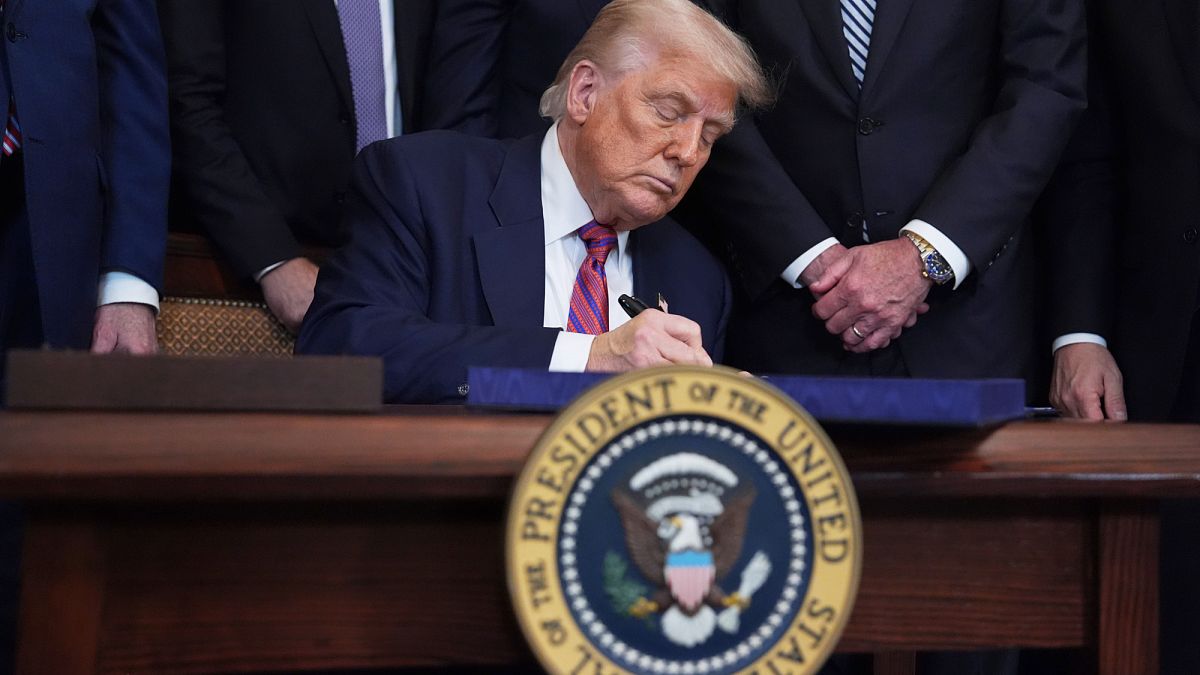

The past week has witnessed a series of significant developments across the globe, influencing political, economic, and social dynamics. From new trade alliances to shifts in regulatory frameworks and demographic trends, these stories offer a glimpse into the evolving world stage.
In response to measures imposed by the Mexican government, the Trump administration has taken decisive action by imposing new restrictions on flights from Mexico and threatening to dismantle the partnership of Delta and Aeromexico. The crux of the issue stems from Mexico’s requirement for airlines to relocate operations from the Mexico City International Airport (AICM) to the newer Felipe Angeles International Airport. The tension underscores the delicate balance of international aviation agreements and the economic imperatives driving regulatory decisions.
Meanwhile, the European luxury market has defied a global slowdown in the sector, growing by 3% to reach nearly €110 billion in 2024. This paradox of growth amidst a general market deceleration is attributed largely to the influence of social media platforms like TikTok and the burgeoning purchasing power of Generation Z. These young consumers are reshaping the luxury landscape by prioritizing unique experiences and sustainable practices, heralding a fresh dimension to indulgence.
Turning towards the European political scene, Ursula von der Leyen, President of the European Commission, is poised for a challenging series of negotiations over the EU’s forthcoming €2 trillion budget. Having recently survived a no-confidence vote, her leadership will be tested in grappling with divergent national interests while addressing vital issues like migration—a topic brought into sharper focus with increased flows from Libya to Greece.
In tandem with budget talks, Europe’s demographic profile continues to evolve, characterized by a pronounced decline in birth rates. Despite the necessity for families to have at least two children to maintain population levels, present figures reveal an average birth rate that barely surpasses one per woman. This trend raises questions about sustainability and potential demographic shifts, with discussions emergent about the role older fathers might play in reversing the decline.
In the realm of digital assets, the United States has marked a pivotal moment with the passage of comprehensive legislation regulating cryptocurrencies. Advocates of the industry hailed this as a significant stride toward integrating digital currencies into mainstream financial systems. Driven by President Donald Trump’s vision of establishing the U.S. as a global hub for cryptocurrency, this regulatory framework sets a precedent for international digital asset governance.
Furthermore, international trade relations are poised for renewal as Indian Prime Minister Narendra Modi plans a visit to the United Kingdom—the first in seven years—to sign a pivotal trade agreement. This engagement not only reinforces bilateral relations between India and the UK but also underscores the strategic importance both nations place on deepening economic ties amid a shifting global trade milieu.
Each of these stories reflects broader currents impacting societies worldwide. They are emblematic of the complex interconnection of political decisions, economic strategies, and social trends that define our era. As nations navigate these challenges, the focus remains on fostering cooperation and adapting to the changing needs of a global community.
Source: {link}
